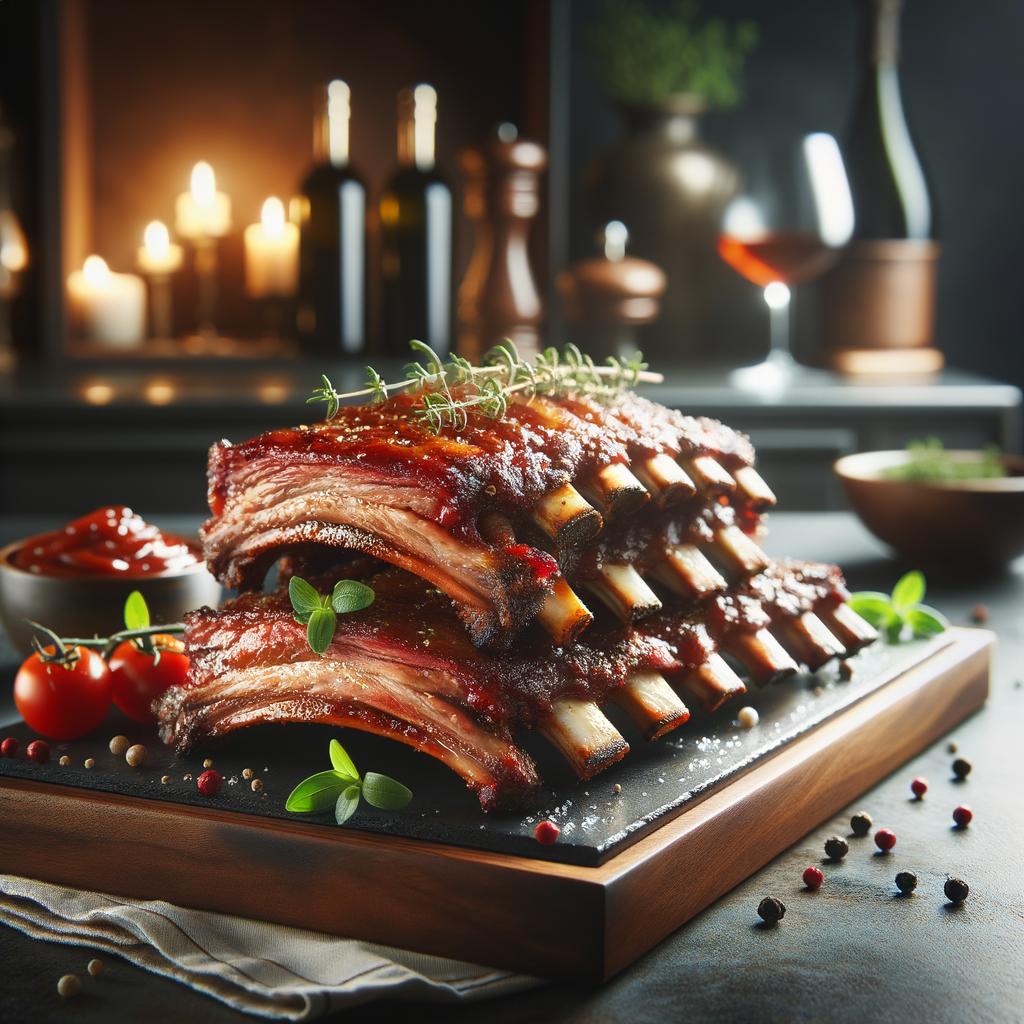Spare Ribs

Description
Spare ribs, a prized cut of meat from the lower portion of a pig, are a culinary delight that have been savored by gastronomes worldwide. These elongated, flat bones are layered with a succulent combination of muscle and fat, giving them a rich, meaty flavor that is both satisfying and indulgent. Their texture varies from tender to chewy, depending on the cooking method, and they have a hearty, robust flavor profile that can be enhanced with a variety of seasonings and sauces. What sets spare ribs apart from similar cuts is their higher fat content, which, when cooked properly, renders into the meat, creating a moist, flavorful, and tender eating experience.
Primary Uses
Spare ribs are incredibly versatile and find their place in various cuisines around the globe. In American barbecue, they are a staple, often slow-cooked to perfection and slathered with a tangy, sweet barbecue sauce. In Asian cuisines, particularly Chinese, they are marinated in a mix of soy sauce, five-spice powder, and other seasonings before being roasted or braised. Apart from their culinary uses, spare ribs also hold cultural significance in many societies, often served during celebrations and festivals.
History
The history of spare ribs is as rich and diverse as the cultures that have embraced them. In the Southern United States, the tradition of barbecuing spare ribs can be traced back to the times of Native Americans and African slaves, who discovered that slow-cooking these less desirable cuts of meat could transform them into a flavorful feast. In China, spare ribs have been a part of the culinary landscape for centuries, often used in traditional dishes for Lunar New Year celebrations. The popularity of spare ribs has only grown over time, with variations of rib dishes now being a common sight in restaurants and home kitchens around the world.
Nutritional Information
Despite their delectable taste, spare ribs are often considered a guilty pleasure due to their high fat content. However, they are also a source of high-quality protein, essential for muscle building and repair. They contain a good amount of vitamins, particularly B vitamins, which are crucial for various bodily functions, including brain health and energy production. They also provide a substantial amount of minerals like zinc and phosphorus. While they might not be the leanest cut of pork, when consumed in moderation and as part of a balanced diet, spare ribs can certainly be a part of a healthy eating plan.

